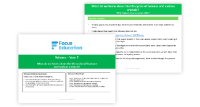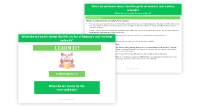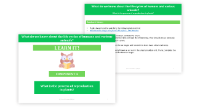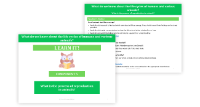What is the life cycle of a young human being?
Lesson
Science
Year 5
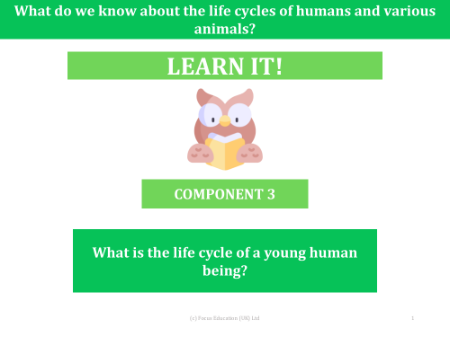
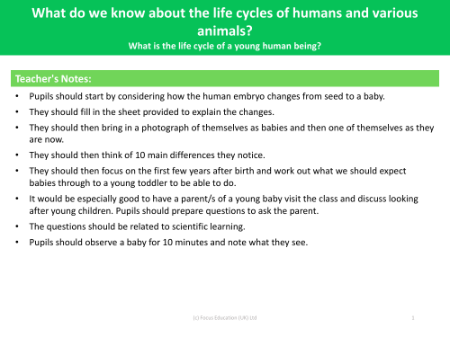
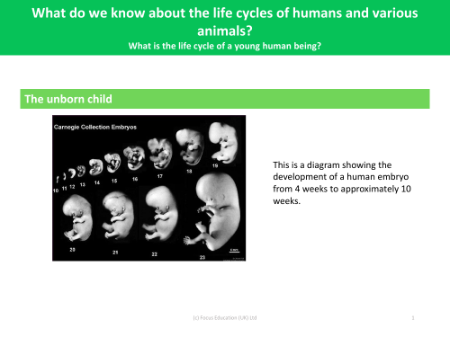
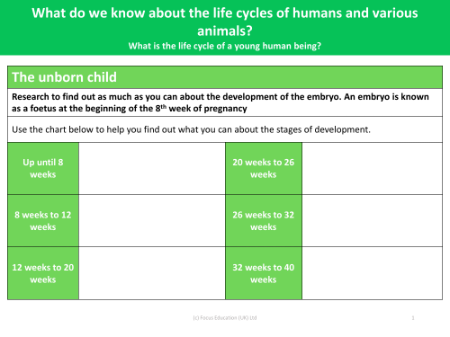
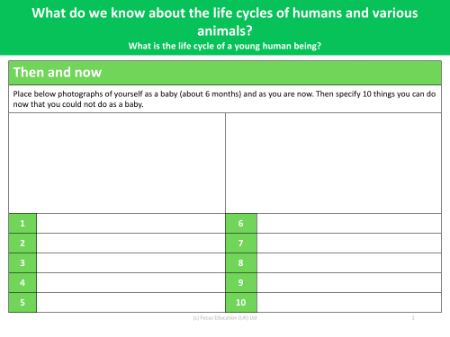
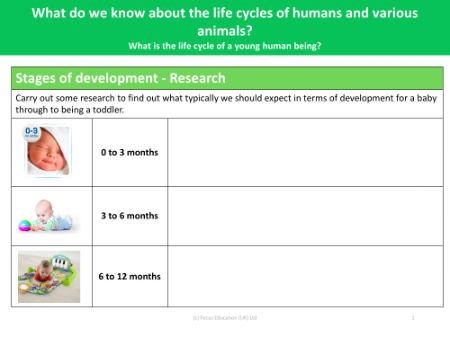
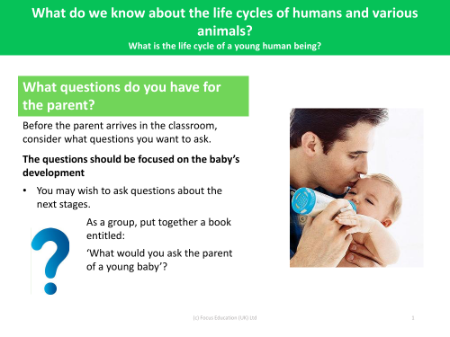
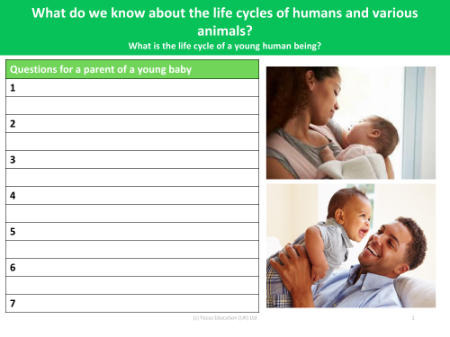
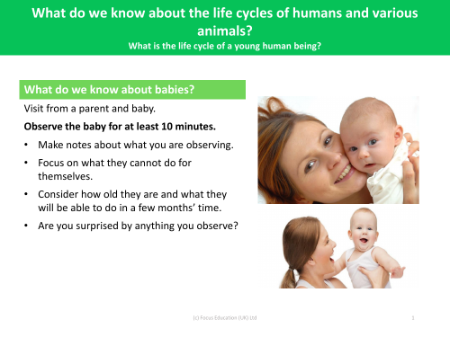
Presentation
Resource 1/9
Premium

Focus Education
Science Lesson Description
Group work
Interactive
Discussion based learning
Year 1 Geography lesson from the unit Features of the UK. This lesson uses an enquiry-approach method, and will facilitate students answering the question 'What is the life cycle of a young human being??'
Lesson contents
Resources

Presentation
Resource
Science
+1
Y5

Teacher notes
Resource
Science
+1
Y5

The unborn child - Diagram - Year 5
Resource
Science
+1
Y5

The unborn child - Worksheet - Year 5
Resource
Science
+1
Y5

Then and Now - Worksheet - Year 5
Resource
Science
+1
Y5

Stages of development - Research - Worksheet - Changes as you grow - Year 5
Resource
Science
+1
Y5

What question do you have for the parent? - Changes as you grow - Year 5
Resource
Science
+1
Y5

Questions for a parent with a young baby - Worksheet - Year 5
Resource
Science
+1
Y5

What do we know about babies? - Changes as you grow - Year 5
Resource
Science
+1
Y5
Lesson contents
Resources

Presentation
Resource
Science
+1
Y5

Teacher notes
Resource
Science
+1
Y5

The unborn child - Diagram - Year 5
Resource
Science
+1
Y5

The unborn child - Worksheet - Year 5
Resource
Science
+1
Y5

Then and Now - Worksheet - Year 5
Resource
Science
+1
Y5

Stages of development - Research - Worksheet - Changes as you grow - Year 5
Resource
Science
+1
Y5

What question do you have for the parent? - Changes as you grow - Year 5
Resource
Science
+1
Y5

Questions for a parent with a young baby - Worksheet - Year 5
Resource
Science
+1
Y5

What do we know about babies? - Changes as you grow - Year 5
Resource
Science
+1
Y5
Unlimited access to 30,000+ resources
All subjects
National Curriculum Coverage
Award-winning content
Explore other content in this scheme
Part of a unit by Focus Education
Other lessons in this unit
This website uses cookies to enhance the user experience.
To get more information about these cookies check our
Hey! It looks like you're in the United States.
Stay on the UK site
Switch to the US site


